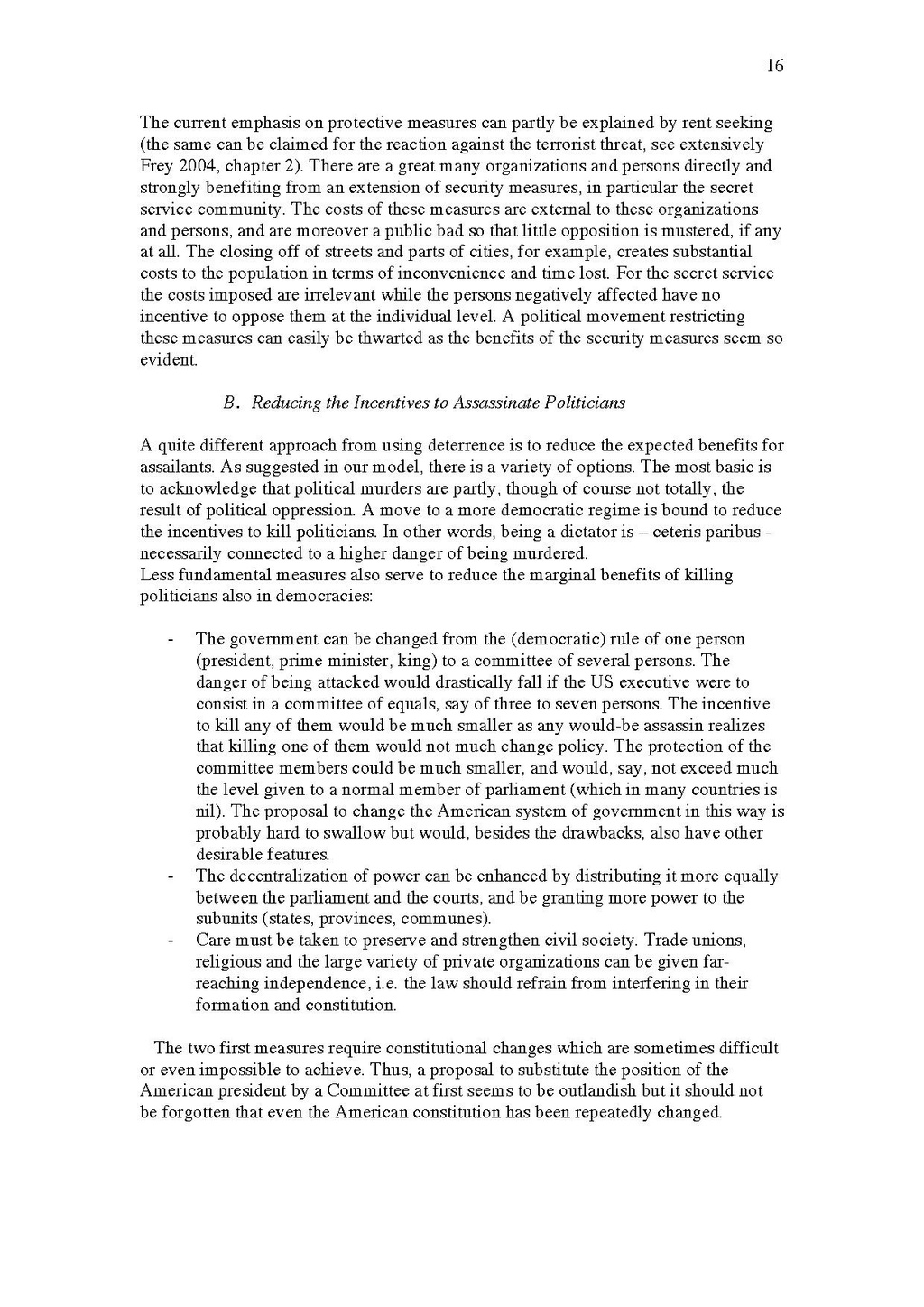The current emphasis on protective measures can partly be explained by rent seeking
(the same can be claimed for the reaction against the terrorist threat, see extensively
Frey 2004, chapter 2). There are a great many organizations and persons directly and
strongly benefiting from an extension of security measures, in particular the secret
service community. The costs of these measures are external to these organizations
and persons, and are moreover a public bad so that little opposition is mustered, if any
at all. The closing off of streets and parts of cities, for example, creates substantial
costs to the population in terms of inconvenience and time lost. For the secret service
the costs imposed are irrelevant while the persons negatively affected have no
incentive to oppose them at the individual level. A political movement restricting
these measures can easily be thwarted as the benefits of the security measures seem so
evident.
A quite different approach from using deterrence is to reduce the expected benefits for
assailants. As suggested in our model, there is a variety of options. The most basic is
to acknowledge that political murders are partly, though of course not totally, the
result of political oppression. A move to a more democratic regime is bound to reduce
the incentives to kill politicians. In other words, being a dictator is – ceteris paribus -
necessarily connected to a higher danger of being murdered.
Less fundamental measures also serve to reduce the marginal benefits of killing
politicians also in democracies:
The two first measures require constitutional changes which are sometimes difficult
or even impossible to achieve. Thus, a proposal to substitute the position of the
American president by a Committee at first seems to be outlandish but it should not
be forgotten that even the American constitution has been repeatedly changed.
- The government can be changed from the (democratic) rule of one person
(president, prime minister, king) to a committee of several persons. The
danger of being attacked would drastically fall if the US executive were to
consist in a committee of equals, say of three to seven persons. The incentive
to kill any of them would be much smaller as any would-be assassin realizes
that killing one of them would not much change policy. The protection of the
committee members could be much smaller, and would, say, not exceed much
the level given to a normal member of parliament (which in many countries is
nil). The proposal to change the American system of government in this way is
probably hard to swallow but would, besides the drawbacks, also have other
desirable features.
- The decentralization of power can be enhanced by distributing it more equally
between the parliament and the courts, and be granting more power to the
subunits (states, provinces, communes).
- Care must be taken to preserve and strengthen civil society. Trade unions,
religious and the large variety of private organizations can be given far-
reaching independence, i.e. the law should refrain from interfering in their
formation and constitution.
B. Reducing the Incentives to Assassinate Politicians
